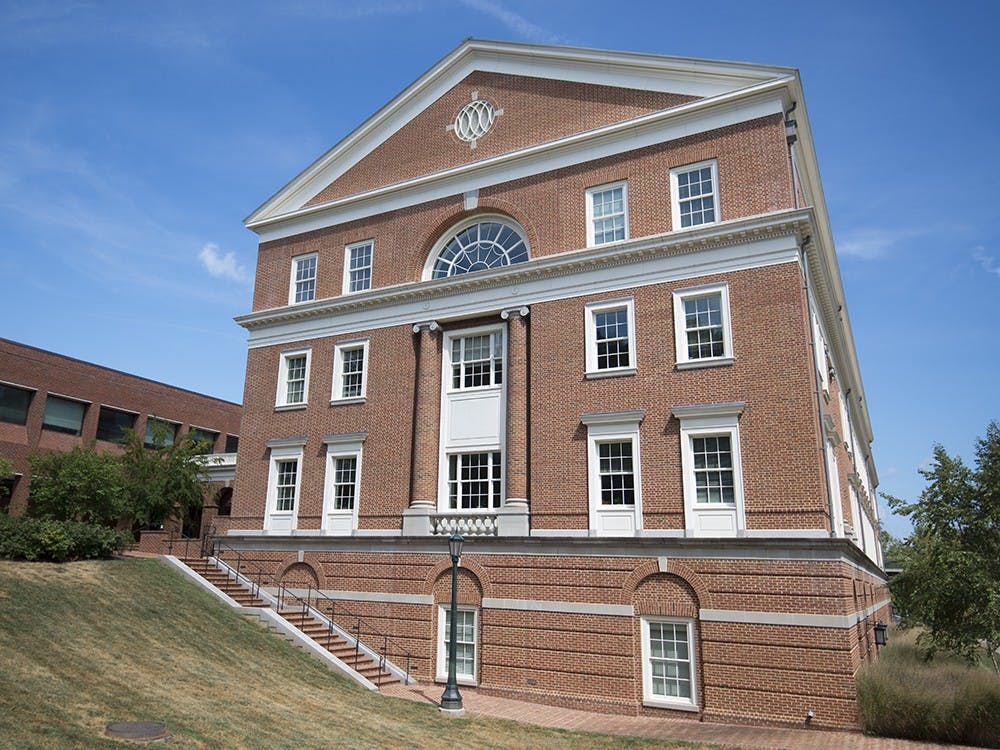The Curry School of Education is currently processing applications for its new Teaching Fellowship, a two-year program satisfying Virginia state requirements for teacher clinical experience and providing more long-term University support and training to new teachers.
The Virginia Department of Education requires student teachers to gain 300 hours of supervised clinical experience — or classroom time — in order to obtain state licensure as educators.
Curry students currently satisfy this requirement through a semester-long teaching internship, which places them in a Virginia school division based on their own regional preferences and the needs of the school districts in partnership with Curry.
Most students are placed in Albemarle County and Charlottesville City schools. Students with a local Charlottesville residence are guaranteed placement within an hour’s drive, and the living arrangements and transportation needs of students placed in more distant counties, like Northern Virginia or Richmond, factor into that placement.
As field placement coordinator for the teacher education program, Adria Hoffman was responsible for placing 150 student teachers in internships this year.
These internships are designed to fit into a model of teacher education based on phasing up from one-on-one student interaction to whole-classroom facilitation, Hoffman said.
“You phase up or scaffold up to the point where you’re meeting your student teaching requirements,” she said. “That’s really more of an internship, and that’s why the field of teacher education often refers to student teaching as an internship.”
Currently, internships last 16 weeks and take place during the fall semester of a student’s final year in the master’s program.
The first teaching fellows are scheduled to begin their residency period next fall.
The fellowship is taken as an alternative to the internship and lasts two years: one year of residency and one year of supervised teaching. Teaching fellows are required to remain within the school district of their fellowship for at least three years after the program.
In addition to the much more extensive guidance and support provided by the fellowship, Hoffman said a major benefit of the program over an internship was the paid residency period.
“One of the big challenges in our field — overall, our entire field nationally — is that teachers are expected to go into teaching, to have this full-time experience, this internship — they don’t get paid for it and they’re paying tuition,” Hoffman said. “We’ve all done it as teachers, and I can tell you — it’s hard to pay the bills.”
The fellowship is supported by the Jefferson Trust. It was one of 18 funding proposals the trust awarded funds to this year.
“One of the Jefferson Trust’s goals is to fund innovative new projects, and this really kind of fit that innovative portion of what we’re looking at — it was a new idea, it was exciting, it was getting a lot of positive feedback from both students in the program and from the school districts that they’re partnered with,” Amy Bonner, the grant administrator for The Jefferson Trust, said.
The Curry Teaching Internship itself is also expanding to accommodate more students and an increase in school districts specifically requesting Curry students.
Beverly Kerr, a teaching mentor at Carysbrook Elementary in Fluvanna County and a new Curry mentor trained as part of this expansion, emphasized how intimidating clinical experiences can be to interns.
“It’s more difficult than people realize it is, and so whenever you put a student from doing these isolated lessons in a classroom to doing what they do during the internship … it can be very stressful,” Kerr said.
She said she was excited, however, by the level of support and preparation Curry provides its student teachers.
Nancy Poole, elementary school staffing specialist of Virginia Beach City Public Schools and an alumna of the Curry School, said she felt fortunate to play a part in the expansion of Curry’s teacher education programs into her own division.
Curry’s fellowship draws from research showing greater success among teachers who gain both experience and permanent employment in the same type of teaching environment and school division, Poole said.
“The fellowship is something that is new and unique,” Poole said, “I don’t know if after doing this other universities will reach out, but this is our first effort with this type of initiative and we’re very excited about it.”
Curry’s student teachers attract the attention of administrators like Poole because, rather than interning in an established classroom, both teaching interns and fellows begin their clinical experience at the start of the year, setting the tone for classroom conduct, Hoffman said.
“One of the reasons that superintendents across the Commonwealth often reach out to us and often tell us that they seek out our candidates is because instead of student teaching in a spring semester at the end, ours actually start when the teachers report back,” Hoffman said. “So they learn how to set up a classroom, organize a classroom, instead of walking into something that’s already functioning.”







